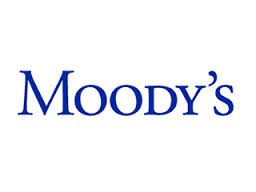MOODY’S: UK NON-CONFORMING MORTGAGEES RESILIENT TO EXPECTED INTEREST RATE INCREASES
Published by Gbaf News
Posted on April 3, 2014
3 min readLast updated: January 22, 2026

Published by Gbaf News
Posted on April 3, 2014
3 min readLast updated: January 22, 2026

According to Moody’s Investors Service, the low interest rate environment post-2009 has benefitted non-conforming borrowers and Moody’s analysis suggests that this market segment will be resilient to the moderate interest rate rises that the rating agency forecasts.
The report titled “Expected Interest Rate Increases Will Not Affect UK Non-Conforming Mortgagees” is now available on www.moodys.com.
 “Our model predicts that a cumulative interest rate increase of 1.0%, which we do not expect until Q1 2016, will only lead to an 0.9% increase among those borrowers not already in arrears, experiencing negative monthly cash flows after mortgage servicing and living expenses have been taken into account. Even with a 3.0% rate increase, only 4.0% more borrowers would face such payment problems”, said Jonathan Livingstone, Moody’s Vice President and Senior Analyst. “However, our model also shows that borrowers who purchased or refinanced their property at the top of the market are at a higher risk from interest rate increases compared with those who financed their property earlier. Borrowers from 2007/2008 are over 50% more likely than average to suffer negative cash flow in such circumstances”, adds Mr Livingstone.
“Our model predicts that a cumulative interest rate increase of 1.0%, which we do not expect until Q1 2016, will only lead to an 0.9% increase among those borrowers not already in arrears, experiencing negative monthly cash flows after mortgage servicing and living expenses have been taken into account. Even with a 3.0% rate increase, only 4.0% more borrowers would face such payment problems”, said Jonathan Livingstone, Moody’s Vice President and Senior Analyst. “However, our model also shows that borrowers who purchased or refinanced their property at the top of the market are at a higher risk from interest rate increases compared with those who financed their property earlier. Borrowers from 2007/2008 are over 50% more likely than average to suffer negative cash flow in such circumstances”, adds Mr Livingstone.
Moody’s base case scenario assumes that borrowers are able to reduce their discretionary spending to bring their average weekly household expenditure (excluding mortgage costs) in line with the Office of National Statistics average of around £500 a week. Should this not prove to be the case, larger numbers of borrowers would be affected? For example, the proportion affected by a 1.0% rate increase rises from 0.9% to 1.5% if weekly household expenditure is instead capped at £800 a week.
Moreover, Moody’s base case assumption is that self-certified borrowers’ income at mortgage origination was not materially different from that stated in their application form. However should income amounts have been over stated a larger proportion of borrowers will be affected? For example, if the true income was 30% lower than stated, the proportion affected by a rate increase of 1.0% rises from 0.9% to 1.4%.
Finally, should both large proportions of borrowers be unable to reduce their discretionary spending so that their average weekly household expenditure, excluding mortgage costs, is in line with the ONS average and self-certified income amounts prove to have been materially over-stated, significantly larger numbers of borrowers will be affected. For example, in the case that expenditure is capped at £800 a week and the true income was 30% lower than stated, the proportion affected by a rate increase of 1.0% rises from 0.9% to 1.9%.
According to Moody’s forecasts, the Bank of England will maintain interest rates at 0.5% for another 12 months and the level will increase only gradually after that. The continuing low interest rate environment will help to keep UK Non-Conforming Residential Mortgage Backed Securities performance resilient, despite the increased cost of living and tighter credit conditions compared with when many of the mortgages were originated.
Additionally, Moody’s expect that the strengthening UK economy will increase discretionary household income in 2014 and 2015 as (1) forecast GDP growth will lead to upward momentum on salaries and ease some of the inflationary pressures on living costs; (2) the projected gradual fall in unemployment will mean households are at lower risk of an income shock through job loss; and (3) the more buoyant housing market and improved credit conditions will help some borrowers in difficulty to either sell their property, or refinance their mortgage to a better rate.
Explore more articles in the Top Stories category











